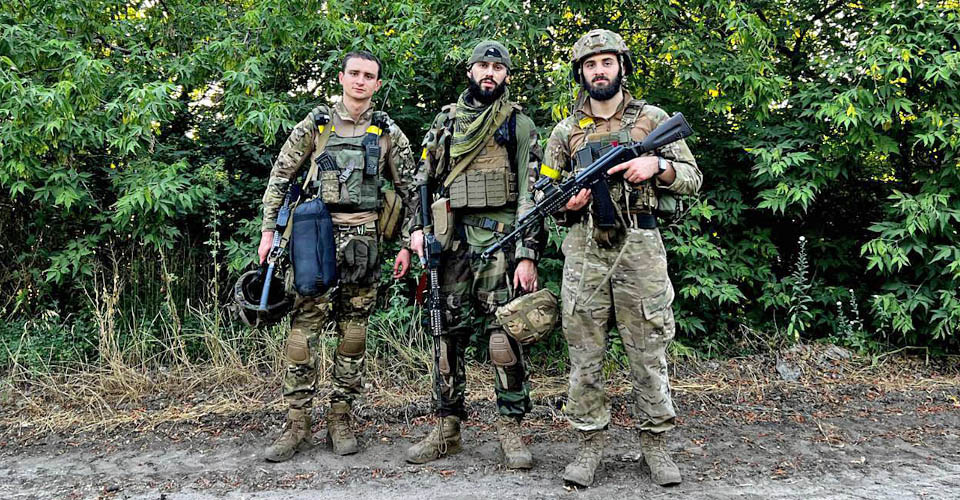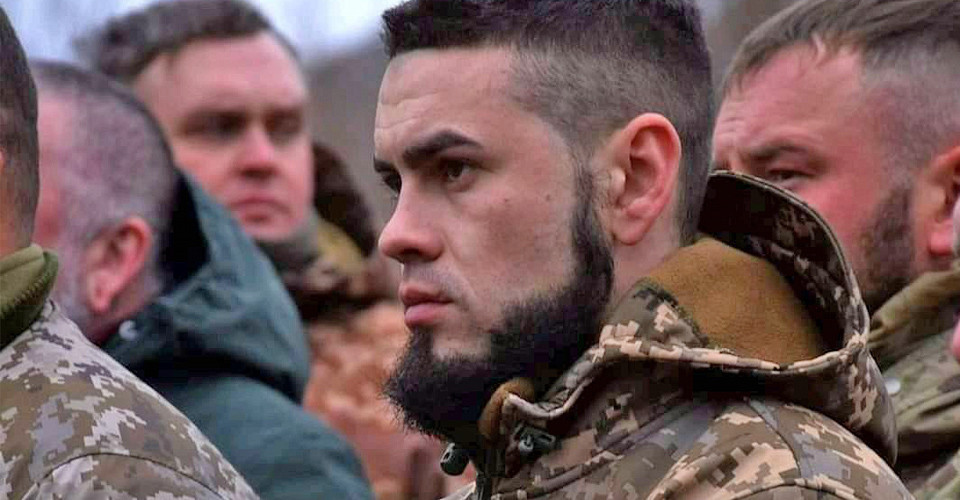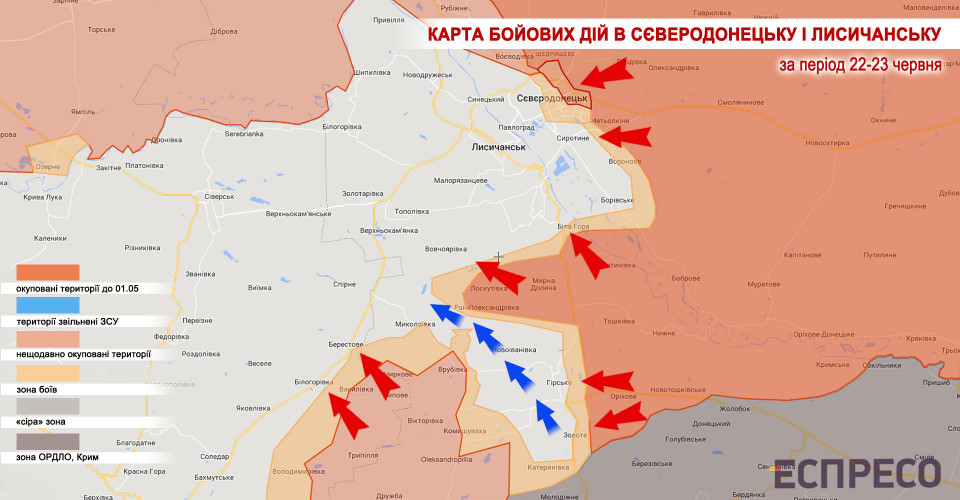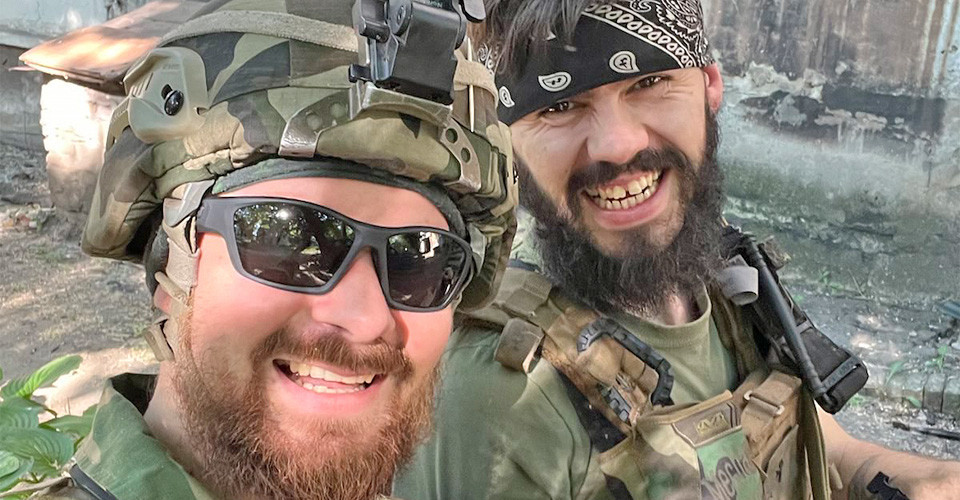
We understood that we could stay in Zolote forever - 24th brigade soldier Yuriy Petraschuk
Yuriy Petraschuk has been in the army since he was 18 years old. He has been fighting for 9 years as part of the 24th Detached Mechanized Brigade. He talks about his path to war and the hottest stage of the full-scale Russian invasion of the Luhansk region
The Espreso.West journalist spoke with the chief sergeant of the first mechanized battalion of the 24th King Daniel detached mechanized brigade Yuriy Petrashchuk.
He spent most of his life at war
Yuriy, you have spent almost all of your life in the army, at war. You entered the ranks of the Ukrainian Armed Forces at the age of 18, now you are 27 and still fight without rest. Tell us about your military career. Why did you choose such a life?

In 2012, I entered Chernivtsi University, studied for a year, and had a desire to serve in the army. At that time there was no war yet, but I wanted to combine the two specialties. Then it was possible to serve while studying, because they were released during the session. Later, hostilities began, I had to serve and sign a contract for three years. That's how, since 2014, I ended up in the 24th 'royal' brigade. In the first mechanized battalion, I started as a machine gunner, now I am the chief sergeant of the battalion.
Always remembered my boys who were killed and those who stayed. Of course, I had a question: if they didn't give up, why should I? Having been there, you constantly live in war. That's why for some it lasts more than a hundred days, and for some it's already the ninth year.
What happened at the front then?
We were mostly in the Luhansk region. The first rotation lasted about eight months, then there were combat adjustments and a return to the combat zone. And so constantly. During these eight years, you probably managed to visit everywhere. Honestly, before the full-scale invasion, we thought 2014 was pretty 'hot'. After the contract, I had a short period when I demobilized and wanted to return to my usual life. However, I was constantly in touch with the boys and at one point decided to return. Always remembered my boys who were killed and those who stayed. Of course, I had a question: if they didn't give up, why should I? Having been there, you constantly live in war. That's why for some it lasts more than a hundred days, and for some it's already the ninth year.
A month before the invasion, I understood that there would be a big war.
How did you meet February 24, when Russia's full-scale invasion of Ukraine took place? What happened at your positions?
As of February 24, we have been carrying out a combat mission in the Luhansk region for almost nine months. But the escalation in our positions began much earlier. Even a month before, I said that there would be a war. Everything reminded me that Russian forces would attack again with great force. About ten days before the full-scale invasion, they began to use weapons that had not been used for a long time, for example, BM-21 Grad, and then they began to shoot on such a scale that I had never seen in my life. Every day, the howitzers worked around the clock in our direction, and then the Grads began to connect. And on February 24, it was very tough. At four in the morning we left for the position. Then helicopters and various types of weapons, which had not been used before, began to appear. It became many times more brutal. I have never seen such things in my life. No one probably expected this. And rockets, and phosphorus and cluster bombs are things that are really scary. It became very noticeable that this was a war.

You are now and continue to be in combat positions in the 24th brigade. If you analyze the work since 2014, in my opinion, the brigade is constantly in the hottest spots.
There is something in this. Especially if you take into account the last rotation that was. First – Popasna, our brigade powerfully defended it for three months. Every day there were fierce urban battles, and when Popasna fell, the 'domino effect' began. We began to lose settlements, which eventually led to the actual encirclement of Zolote and the capture of almost the entire Luhansk region.
We understood that we could stay in Zolote forever
By the way, about Zolote. I remember the map. Russian troops surrounded Zolote on both sides. How did you manage to hold the defense?
Every day began with artillery fire, with various types of weapons, attacks with armored vehicles, tanks entered, BMP, etc.
From the very beginning, Zolote was a small 'appendicitis'. After three months of defense, it was obvious that sooner or later we would be 'closed'. The flanks began to collapse, but we continued to stand. There was no place in the Luhansk region that was not shot at. Every trip was a risk to life.

Defense is easier than offense. Therefore, our task now is to preserve the territory as much as possible so that it will be easier to fight back later. Why should we move away from prepared positions and then go back to them with losses? That is why we held on with titanic efforts. Every day began with artillery fire, with various types of weapons, attacks with armored vehicles, tanks came in, BMP, etc.
Tell us how the exit from Zolote took place? We know that it was possible to successfully remove the equipment, and more than four hundred fighters went to relatively safe territory.
There was no safe place in the Luhansk region. Everything was shot through, it was difficult to breathe. The enemy surrounded from all sides. It was difficult morally, because we understood that we could stay in that Zolote one forever.
As early as June 21, we tried to evacuate the wounded, but Russian tanks entered, broke through Toshkivka's defenses and blocked our route to Lysychansk. On the other hand, everything was also closed. We tried to break through the country roads, but it turned out that we ended up back in the Zolote-Girske area. Then we took up a circular defense and waited until we were given a command for further actions. There was no safe place in the Luhansk region. Everything was shot through, it was difficult to breathe. The enemy surrounded from all sides. It was difficult morally, because we understood that we could stay in that Zolote forever.
And how did you manage to leave?
We left nothing to the enemy. They left with minimal losses, both human and equipment.
We planned to go out at night so as not to draw attention to ourselves. Because any technique is a hum, and it immediately flies there. They went out in several groups. And then, when all the groups left, the armored vehicles drove. It was the most dangerous moment. Iris (commander - Ed.) divided the equipment into two columns. The danger was that you were driving and somewhere might be mined. Secondly, the hum and cars full of ammunition. We left nothing to the enemy. They left with minimal losses, both human and equipment.
If we compare the Luhansk, Donetsk regions, and even the south of Ukraine. They can't capture the Donetsk region. Why do you think it happened so quickly in the Luhansk region?
I will give my opinion. Those people who were pro-Ukrainian left a long time ago so as not to be in danger or under 'Russian rule'. And those who remained were pro-Russian, who shouted: "Putin, save us!". This is very unfortunate. Of course, it happened that they surrendered Ukrainian positions. These are the consequences of Russian propaganda. Even in more peaceful times, when there was a Joint Forces Operation, we asked the locals what television they were watching. Then people answered: "A little bit is theirs, a little bit is ours." It is very unfortunate that this is happening.

You are a historian by education. Can you draw parallels between the current struggle against Russia and the one that took place before? In my opinion, the Russian actions have not changed for decades.
I agree. The same situation was with Ichkeria, for example. Under no circumstances should you sign any contracts with the Russians. This will allow them to 'work on the mistakes', and then it will be like in Chechnya: the Russians will return again. In my opinion, the hostilities in Ukraine are the most terrible war. After the Second World War, there was nothing more terrible.
You are in the ninth year at the front. What prospects do you see for how this war can end?
We have no choice but to win. I do not think that we should make any compromises with the Russians. What to talk about with terrorists? Russia is a terrorist country that has been blackmailing everyone, oppressing peoples, killing women and children throughout its history. We are military people, each of us understands all the risks, and realizes that we can lay down our lives for Ukraine. And what is the fault of that little child? Who should pay for it? Russians do things that should not happen in the civilized world. I think they had completely different plans, they wanted to make a big ring, but it didn't work out. And now it doesn't work. They have been holding on to that east for so long, despite the number of personnel and equipment, which exceeds ours by many times. But all the same, the Ukrainian army is holding on. They do not have very big trump cards, so they are already putting pressure on the psyche with these missile strikes on peaceful people.
You have been in the army almost all your life. What are your dreams and future plans?
To be honest, I want some peace, but until this war is over, there won't be any. Will have to fight. You know, even if I were in civilian life, I wouldn't stand aside, I wouldn't hide. Even if he were abroad, he would fight for Ukraine. Since the age of 18, I have been trying to fight, to do everything so that this country lives, so that we are free. I'm now 27. I want this to be over so we can win. And then build your life and create a family.
- News













































